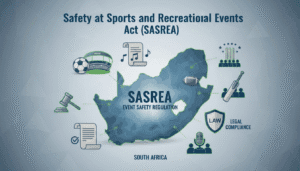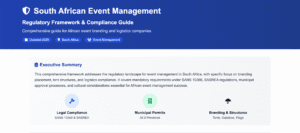Hosting a successful event requires more than just good organization skills. It requires careful planning, execution, and strategy to ensure that your event is a memorable one. Whether you’re a seasoned event planner or organizing your first event, the following tips, tricks, and insights will help you deliver an exceptional experience to your guests.
At B&W Productions, we pride ourselves on delivering exceptional events. Over the years, we’ve learned what it takes to create an event that exceeds expectations, and we’re excited to share our insights with you.
Key Takeaways:
- Managing successful events requires careful planning, execution, and strategy
- Event planning involves setting objectives, identifying target audiences, and creating event budgets
- Event management involves turning event plans into reality, including venue selection and vendor management
- Effective organization and coordination are critical to managing successful events
- Event logistics play a critical role in transportation arrangements, equipment rentals, and on-site coordination
- Event marketing strategies such as social media promotion and email marketing can help drive attendance and engagement
- Executing events with precision involves creating run sheets, contingency plans, and on-the-day management
- Developing an effective event strategy involves goal setting, target audience analysis, and post-event evaluation
Understanding the Basics of Event Planning
Whether you are an event planning professional or organizing an event for the first time, getting the basics right is crucial to the success of your event. Here are some fundamental elements to consider when planning your next event:
Set Objectives
To plan a successful event, you need to establish clear objectives. What do you want to achieve with the event? Is it to raise funds, build brand awareness, or celebrate an achievement? Having a clear idea of your goals will help shape the rest of your planning process and ensure that all decisions align with your objectives.
Identify Your Target Audience
Every event has a target audience, whether it’s customers, employees, donors, or the general public. Consider who your event is aimed at, and tailor the event to their interests, needs, and expectations. This will help you create an event that hits the mark and maximizes attendance.
Create a Budget
Event planning involves a lot of financial decision-making, so creating a budget is essential. Consider all the necessary expenses, from venue rental to catering, and allocate funds accordingly. Work with your team or clients to determine spending priorities and identify cost-saving opportunities.
Work with a Professional
Organizing an event can be an overwhelming task, especially if you are doing it for the first time. To ensure that your event is a success, consider working with B&W Productions, an event planning company with extensive experience and expertise in organizing a wide range of events. This will give you the peace of mind that your event is in capable hands and allow you to focus on other important tasks.

By incorporating these fundamental elements into your event planning process, you can set yourself up for success and create an unforgettable experience for your guests.
Event Management: From Concept to Reality
As you move from planning to execution, effective event management is key to ensuring a successful event. At B&W Productions, we know that attention to detail and seamless coordination are essential to creating memorable experiences. Here’s how we turn event concepts into realities:
Venue Selection
The venue sets the tone for the entire event, so it’s important to choose wisely. Consider factors such as capacity, location, and amenities to ensure that the venue fits your event’s needs. B&W Productions has established relationships with a variety of venues, from intimate spaces to expansive ballrooms, to find the perfect match for any event.
Vendor Management
From catering to entertainment, vendors play a crucial role in bringing your event to life. B&W Productions works closely with vendors to ensure that their services align with your vision and that they are delivering on their promises. From contract negotiation to on-site management, we handle the logistics so that you can focus on enjoying your event.
Timeline Development
Effective timeline development ensures that all aspects of your event are executed on schedule, creating a seamless experience for attendees. B&W Productions works with you to develop a detailed timeline, taking into account set-up and tear-down times, as well as all event activities. We also build in contingency plans to handle unexpected changes or delays.
At B&W Productions, we believe that successful event management comes down to meticulous planning, clear communication, and a dedicated team. By working with us, you can rest assured that every aspect of your event will be executed with precision.

The Art of Event Organization and Coordination
In managing successful events, effective organization and coordination are paramount. Whether you’re coordinating an intimate gathering or a large-scale event for B&W Productions, attention to detail and a well-structured plan are essential for success.
One critical aspect of event organization is guest registration. Creating a streamlined registration process ensures that attendees can easily access the event and that organizers can keep track of guest numbers. Consider using online registration software to simplify the process, or hire event staff to manage on-site registration.
Logistics management is another essential element of event organization. Ensuring that every aspect of the event is on schedule and that vendors and staff have everything they need to execute their tasks is crucial. Use a detailed timeline to keep track of deliveries, setups, and breakdowns, and assign a point person for each task.
Effective communication is also vital in coordinating an event. Maintain open lines of communication with your team, vendors, and other stakeholders to ensure everyone is on the same page. Consider using a communication platform such as Slack or WhatsApp to keep everyone updated in real-time.
To manage a successful event, you must also consider contingency plans. While it’s essential to have a detailed plan for the event itself, it’s also crucial to plan for the unexpected. Develop a list of potential issues that may arise, and create plans to address them quickly and efficiently. This preparation will ease stress and ensure that the event runs smoothly.
Finally, be sure to develop an event day run sheet. A run sheet is a detailed timeline of the event, including setup, run of show, and breakdown. Use this document to ensure that everything is on track, and to provide a clear record of the event for future reference.

Unlocking the Secrets of Event Logistics
Successful event management requires detailed attention to logistics, the aspect of event planning that ensures everything runs smoothly on the day. B&W Productions has mastered the art of event logistics, and we know that paying attention to the smallest details is what sets your event apart. From transportation arrangements to equipment rentals and on-site coordination, here’s everything you need to know to ensure your logistics are on point.

Transportation Arrangements
Transportation is an important aspect of event logistics. Ensure that your guests have a clear understanding of how to get to your event by providing comprehensive directions and maps. If your event is taking place at a large venue, arrange for shuttle buses or other forms of transportation to make it easy for guests to navigate. If VIP guests are attending, consider hiring a private car service to pick them up and drop them off.
Equipment Rentals
Renting equipment is a cost-effective solution for any event. Consider what equipment you will need, such as sound systems, lighting, and staging, then rent or hire professionals to set up and operate it. Ensure that equipment is tested before the event to avoid any technical difficulties on the day. Additionally, ensure that you have adequate power supply and set up backup generators in case of a power outage.
On-site Coordination
On-site coordination is key to the success of any event. You need an experienced team that can handle any issues that may arise and ensure that everything runs smoothly. Assign specific tasks to team members and create a detailed timeline to follow. Additionally, plan for contingencies and emergencies. Keep an emergency kit on hand, and plan for medical assistance, if necessary.
By taking care of these aspects of event logistics, you can ensure that your event runs like clockwork and is a huge success. Contact B&W Productions today to learn more about how we can help with your event logistics.
Maximising Event Marketing Strategies
Marketing is a crucial aspect of any event, with the potential to attract more attendees and improve engagement. To make the most of your event marketing efforts, consider the following tips:
- Develop a clear message: Before promoting your event, you need to have a clear message that resonates with your target audience. Think about what sets your event apart from others and why people should attend.
- Utilise social media: Social media is an excellent platform for promoting events and building buzz. Determine which platforms your target audience uses the most and create engaging content to capture their attention.
- Partner with influencers: Partnering with influencers or industry leaders can increase your event’s exposure and credibility. Identify individuals with a large following or influence in your industry and reach out to them for collaboration opportunities.
- Send targeted emails: Email marketing is an effective way to reach your audience directly and encourage attendance. Segment your contact list to send targeted messages that are relevant to each recipient.
- Offer early bird tickets: Offering early bird tickets at a discounted rate can incentivise people to purchase tickets sooner rather than later.
- Make it shareable: Encourage attendees to share their experience on social media by creating shareable content, like custom hashtags or photo opportunities.
By implementing these strategies, you can maximise your event’s marketing potential and increase attendance. As B&W Productions, a leading event management company, says, “Effective event marketing is all about creating a buzz and excitement around the event. With the right marketing strategy, you can generate interest and encourage attendees to take action.”

Executing Events with Precision
When it comes to event management, the devil is in the details. To ensure that your event is executed flawlessly, you need to pay attention to every aspect of the operation. Here are some tips to help you execute events with precision.
Develop a Comprehensive Run Sheet
A run sheet is a vital document that outlines the timeline and order of events for the day. It should include details like the arrival time of vendors and performers, the start and end times for each segment of the event, and any breaks or intermissions. The run sheet should be circulated to all stakeholders, including vendors, performers, and the event team, to ensure that everyone is on the same page. B&W Productions can provide you with a customized run sheet template that you can use for your upcoming event.
Create Contingency Plans
No matter how well-planned an event is, unexpected issues can arise. To avoid potential disasters, create contingency plans for each aspect of the event. For example, if your outdoor event is threatened by bad weather, have an indoor backup plan in place. Similarly, if a speaker cancels at the last minute, be prepared to fill the gap with an alternative activity or performer.
Assign Roles and Responsibilities
Make sure that each member of your event team is clear on their roles and responsibilities. Develop a detailed list of tasks, covering everything from decor setup to guest registration. Assign specific tasks to team members and ensure that they are trained to carry out those tasks with precision. Consistent communication is key and an organizational tool like Trello can help make sure everyone is aligned.
Ensure On-the-Day Management is Effective
On the day of the event, you need to have a team in place to ensure that everything runs smoothly. This could include a stage manager, front-of-house manager, and technical director. Each member of the team should have a headset so they can communicate with each other, and they should be ready to act quickly if anything goes wrong. Having a detailed plan and an effective on-the-day management team is essential to ensure that your event is executed to perfection.

Developing an Effective Event Strategy
Developing a comprehensive event strategy is crucial to the success of any event. Without a clear plan in place, you may find yourself scrambling to keep up with the demands of the day. By taking the time to create a strategy that covers all aspects of your event, from start to finish, you can ensure that your event runs smoothly and achieves your goals.
The first step in developing an effective event strategy is to set clear goals and objectives. What do you hope to achieve with your event? Are you looking to raise awareness for a cause, generate leads for your business, or simply provide an enjoyable experience for your attendees?
Once you have established your goals, it is important to identify your target audience. Who are you trying to reach with your event, and what do they want and need from your event? Consider factors such as age, gender, interests, and location when defining your target audience.
With your goals and target audience in mind, it’s time to start planning the logistics of your event. This includes selecting the right venue, choosing vendors, and developing a timeline for the day. Make sure to consider factors such as budget, accessibility, and potential weather issues when making these decisions.
Another important aspect of your event strategy is marketing. How will you promote your event to your target audience? This may include social media advertising, email marketing, or partnerships with other businesses or organizations. Make sure to create a cohesive marketing plan that highlights the unique aspects of your event and encourages attendees to register.
Finally, don’t forget to evaluate the success of your event once it is over. This may include collecting feedback from attendees, analyzing attendance numbers, and reviewing your budget. Use this information to make informed decisions for future events and to continually improve your event-planning skills.

By taking the time to develop a comprehensive event strategy, you can ensure the success of your event and elevate your event planning game. B&W Productions can assist you in developing a strategy that is tailored to your specific event needs. Contact us today to learn more.
Conclusion
Now that you’ve learned the tips, tricks, and insights to mastering the art of managing events, it’s time to put them into action. Remember, successful event management requires a comprehensive strategy that encompasses all aspects of event planning and execution. Implementing a detailed timeline and effective communication with your team will contribute significantly to the overall experience. By adapting to unexpected challenges and maintaining a flexible approach, you can enhance your capability to deliver a remarkable event. Ultimately, achieving success in event management hinges on your ability to anticipate needs and exceed expectations. Furthermore, embracing strategic planning for event managers will empower you to align your goals with actionable steps, making the entire process more streamlined. By prioritizing tasks and leveraging technology for organization, you can significantly reduce stress and improve overall efficiency. Remember, every detail counts, and a thoughtful approach to planning will ensure that your events leave a lasting impression.
At B&W Productions, we understand the importance of creating unforgettable events that leave lasting impressions on attendees. That’s why we prioritize effective event organization, logistics coordination, and marketing strategies to ensure a seamless and unforgettable experience for all.
By following the steps outlined in this article, you’ll be well on your way to organizing successful events that exceed expectations. Whether you’re planning a corporate conference or a social gathering, the key is to stay focused, dedicated, and adaptable.
Get in Touch with B&W Productions
If you’re looking for a reliable event management company to help bring your vision to life, get in touch with B&W Productions today. With our extensive experience and expert team of professionals, we’ll work with you to create an event that’s sure to impress.
Thanks for reading and best of luck with all your future events!
What Are the Essential Skills and Qualifications Needed to Become an Events Manager?
To embark on a successful career as an events manager, it is imperative to possess certain essential skills and qualifications. A keen eye for detail, strong organizational abilities, and effective communication skills are vital for seamlessly coordinating various aspects of events. Additionally, creativity, a flexible mindset, and problem-solving prowess are necessary to handle unexpected challenges. Earning a degree in event management or a relevant field can provide the necessary knowledge and foundational understanding required to excel in this role. By actively emulating and learning from experienced professionals, aspiring individuals can navigate their path with this becoming an events manager guide.
FAQ
Q: What is event planning?
A: Event planning is the process of organizing and coordinating all the necessary elements to create a successful event, including setting objectives, identifying target audiences, and creating event budgets. In addition to these foundational tasks, an event planner must also manage logistics such as venue selection, vendor coordination, and scheduling. The intricacies of this role require strong communication skills and attention to detail, as each component plays a crucial role in the overall success of the event. To better understand the scope of this profession, event planner responsibilities explained include managing on-site operations and ensuring a seamless experience for all attendees.
Q: How do you turn event plans into reality?
A: Turning event plans into reality involves selecting the right venue, managing vendors, and developing a timeline to ensure smooth execution. Additionally, it’s crucial to identify the target audience and tailor the experience to meet their expectations. By mastering event design essentials, planners can create a cohesive atmosphere that resonates with attendees, enhancing their overall experience. Effective communication and collaboration with all stakeholders further streamline the process, ensuring that every detail contributes to the event’s success.
Q: Why is effective organization and coordination important in managing events?
A: Effective organization and coordination play a crucial role in managing successful events. Tasks such as guest registration, logistics management, and communication strategies need to be well-executed to ensure a seamless experience for attendees.
Q: What are the critical aspects of event logistics?
A: Event logistics include transportation arrangements, equipment rentals, and on-site coordination to ensure that all necessary resources and services are in place for the event.
Q: How can event marketing strategies be maximized?
A: Event marketing strategies can be maximized through various channels such as social media promotion, email marketing, and partnerships to attract maximum attendance and engagement.
Q: How can events be executed with precision?
A: Events can be executed with precision by creating run sheets, preparing contingency plans, and effectively managing all aspects of the event on the day.
Q: What does developing an effective event strategy involve?
A: Developing an effective event strategy involves setting clear goals, analyzing the target audience, and evaluating the event’s success through post-event evaluation.




